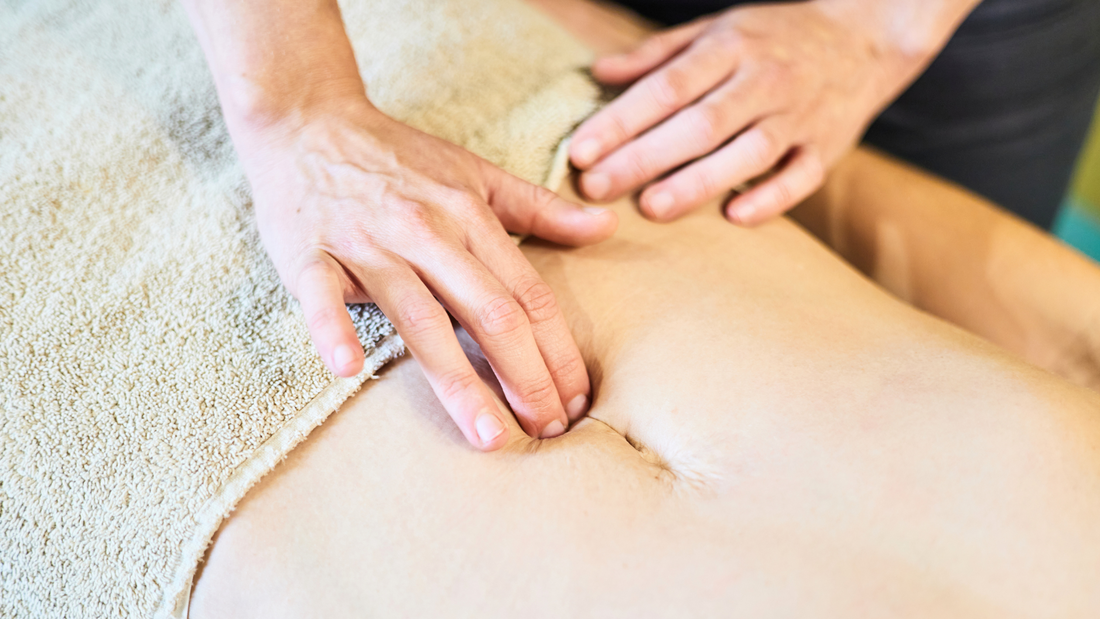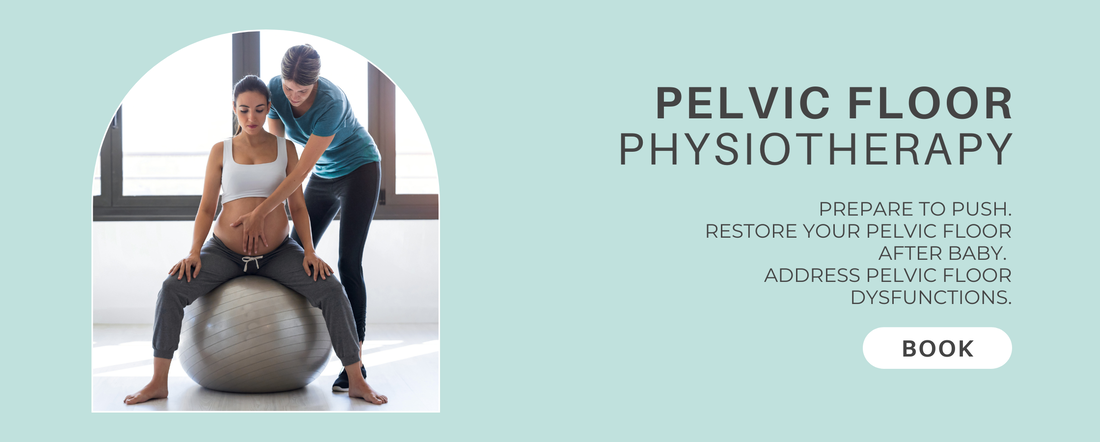|
Are you curious about Pelvic Floor Physiotherapy? Do you have questions or concerns about this specialized therapy? At Yoga Mamas, our trained Pelvic Floor Physiotherapists are here to support and guide you. Read this blog where we address your most commonly asked questions. What does Pelvic Floor Physiotherapy involve? Pelvic Floor Physiotherapy is a specialized form of physical therapy that focuses on the muscles, ligaments, and connective tissues that support the pelvic organs, including the bladder, uterus, and rectum. The pelvic floor muscles also play an important role in sexual function, core stability, and posture. At Yoga Mamas, a highly skilled Pelvic Floor Physiotherapist will assess the strength, tone, and function of your pelvic floor muscles. This may involve an internal examination, where the physiotherapist will gently insert a gloved finger into the vagina to feel for muscle tension, strength, and coordination. Your physiotherapist will continually check in with you to ensure that you are as comfortable as possible during your session. Based on the assessment, the physiotherapist will create a personalized treatment plan that may include:
What happens during a pelvic floor physiotherapy assessment? During a pelvic floor physiotherapy assessment, the physiotherapist will ask you about your medical history, current symptoms, and any previous treatments you may have had for pelvic floor dysfunction. The physiotherapist will also inquire about your daily habits, such as your diet, fluid intake, and exercise routine, as these can affect your pelvic health. At Yoga Mamas we want every experience to be as comfortable as possible. Before your examination, your physiotherapist will go through any concerns or questions you may have. The examination may include both external and internal assessments. For the internal assessment, the physiotherapist will use a gloved finger to feel the pelvic floor muscles and assess their strength, tone, and coordination. This is done while you are lying down, and the physiotherapist will explain the process beforehand to ensure you feel comfortable and at ease. During the internal assessment, the physiotherapist will also check for any tenderness, pain, or trigger points in the pelvic floor muscles. They may also assess the mobility of the pelvic organs, such as the bladder and uterus, to see if they are prolapsed or descending. Based on the assessment, the physiotherapist will develop a personalized treatment plan that may include pelvic floor muscle exercises, manual therapy, education on posture, breathing, and lifestyle modifications. The physiotherapist will also discuss the frequency of follow-up visits based on your goals and schedule. How do you know if you need pelvic floor physiotherapy? You may benefit from pelvic floor physiotherapy if you are experiencing any of the following symptoms or conditions:
Is pelvic floor physiotherapy painful? Pelvic floor physiotherapy is generally not painful, but some discomfort or pressure may be experienced during an internal assessment. However, your physiotherapist will work with you to ensure you feel comfortable and at ease during the assessment. During the treatment sessions, the physiotherapist may use manual techniques to release tension in the muscles. These techniques may involve some pressure or discomfort, but should not be painful. Your physiotherapist will be be continually checking in with you to ensure that the treatment is comfortable, and will modify accordingly based on your feedback. After a pelvic floor physiotherapy session, you may feel some discomfort. Strengthening your pelvic muscle is similar to working out any other muscle in your body and you may feel similar soreness. How do you prepare for a pelvic floor physiotherapy appointment?
What do pelvic floor physiotherapists do for your pelvic floor?
Pelvic floor physiotherapists use a variety of techniques to help improve the function of your pelvic floor muscles. Here are some of the things you can expect during your treatment at Yoga Mamas:
Comments are closed.
|
Categories
All
Archives
July 2024
|
-
Wellness Services
- Wellness Concierge
- Abdominal Massage
- Acupuncture
- Cosmetic Acupuncture
- Cesarean Scar Release Therapy
- Chinese Herbal Medicine
- Chiropractic Care
- Counselling >
- Craniosacral Therapy
- Online EFT Tapping
- Fascial Stretch Therapy
- Home Visits
- Online Holistic Nutrition
- Gua Sha Glow Facial
- Introduction to Solids
- Infant & Kids Massage
- Infant Sleep Consulting
- Kinesiology
- Kinesio Taping
- Lactation Consulting
- Light Therapy >
- Lymphatic Drainage Massage
- Massage Therapy
- Naturopathic Medicine
- Osteopathy
- Pelvic Floor Physiotherapy
- Physiotherapy
- Pediatric Physiotherapy
- Online Speech Language Therapy
- Ultrasound For Blocked Ducts
- Vitamin Injections
- FITNESS
- Doula Care
- WORKSHOPS & EVENTS
- Free Events
- Professional Trainings
- Blog
- SHOP ONLINE
Services |
ABOUT US |
|
A Note About yoga Mamas' Cancellation Policies
Please note that we do not offer refunds. Each event/course/training/wellness appt has it's own specific cancellation policy which is listed on each registration page. Please take the time to read these in full prior to registering. Each event/appointment that we run is in partnership with a practitioner who is focusing their independent career in prenatal and postpartum health. This is their beautiful livelihood. This is why we have these policies in place. Thank you very much for your understanding. Jamie Kalynuik, Founder of Yoga Mamas
[email protected] | 416-406-0116 | 1402 Queen St E Suite D. Toronto M4L 1C9
-
Wellness Services
- Wellness Concierge
- Abdominal Massage
- Acupuncture
- Cosmetic Acupuncture
- Cesarean Scar Release Therapy
- Chinese Herbal Medicine
- Chiropractic Care
- Counselling >
- Craniosacral Therapy
- Online EFT Tapping
- Fascial Stretch Therapy
- Home Visits
- Online Holistic Nutrition
- Gua Sha Glow Facial
- Introduction to Solids
- Infant & Kids Massage
- Infant Sleep Consulting
- Kinesiology
- Kinesio Taping
- Lactation Consulting
- Light Therapy >
- Lymphatic Drainage Massage
- Massage Therapy
- Naturopathic Medicine
- Osteopathy
- Pelvic Floor Physiotherapy
- Physiotherapy
- Pediatric Physiotherapy
- Online Speech Language Therapy
- Ultrasound For Blocked Ducts
- Vitamin Injections
- FITNESS
- Doula Care
- WORKSHOPS & EVENTS
- Free Events
- Professional Trainings
- Blog
- SHOP ONLINE






